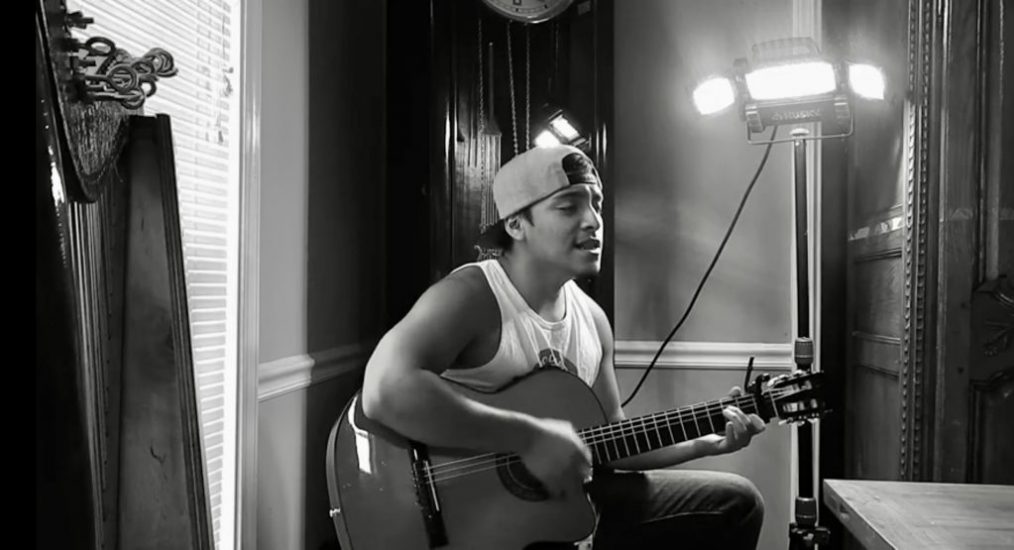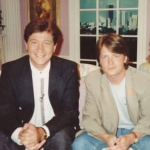‘Chase The Light’: Cesar Perez on His Gritty, Grace-Filled Memoir Inspired By a Near-Fatal Accident
As Joni Mitchell once wryly observed, “sometimes, change comes at you like a broadside accident.” When the iconic singer-songwriter wrote those lyrics 30 years ago, Mitchell could not have predicted having to rebuild her life following a 2015 brain aneurysm. In his new powerful page-turner of a memoir, “Chase The Light: The Gruesome Art of Becoming Unbreakable,” Atlanta actor, musician and brain injury survivor Cesar Perez is even more succinct: how do you rebuild your life after “it’s been shattered in every way?”
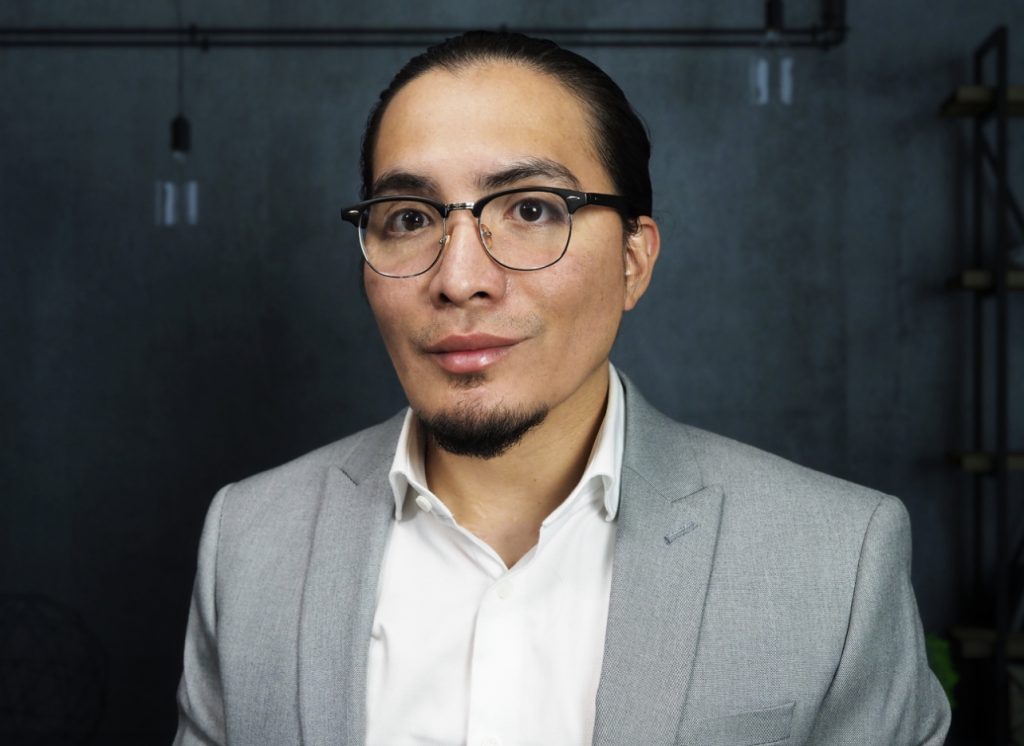
On Jan. 12, 2018, Perez, a rising young Georgia actor already had scenes in the can with actor Daniel Radcliffe on the locally shot film “Beast of Burden,” when he pointed his Toyota Camry toward the Georgia coast to visit his girlfriend. He never made it. Near Dublin, Perez was hit by a drunk driver and spun his car around where he was then struck a second time by a tractor trailer, “leaving me in nothing but a heap of twisted metal.” On the way to the hospital, Perez coded twice on paramedics. The soccer player’s leg had been snapped so severely his femur was protruding out of his leg. Every bone in the actor’s face had been broken and in the process, the singer-songwriter’s frontal lobe had taken a direct hit in the crash.
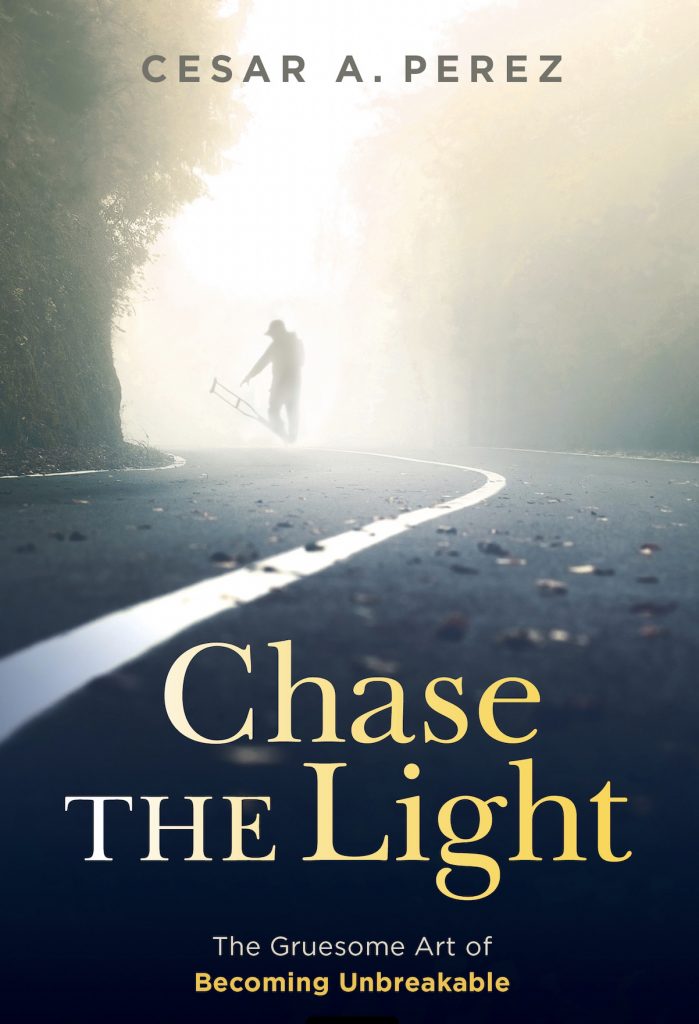
Miraculously, Perez not only survived, but 22 surgeries later, has written an inspirational book about his four-year ordeal and is not only rebuilding his life but his career as well. When it was released on July 12, his memoir “Chase The Light” (Houndstooth Press, $17.99) literally became an Amazon bestseller overnight. And like any first-time author, Perez, now 29, is having to do press to promote it. Last week, for a scheduled TV interview booked at WTOC-TV in Savannah, Perez was required to get back on I-16 for the first time since the accident on the same interstate nearly killed him.
“I thought I was going to feel anxious or that something was going to come back to me but it didn’t,” says Perez, reflecting on the trip over a cappuccino at Après Diem in Midtown Atlanta. As dinner servers swirl around him, he smiles and adds, “I was finally able to close that chapter and move forward.”
As his brain continued to heal while he cranked out chapters of his story chronologically, Perez noticed his writing was stronger by the book’s end. After briefly considering going back and reworking the earlier chapters, Perez and his editor made the decision to leave it as is: “I decided to keep it the way it was so readers could see that progression.”
At the beginning of the writing process, Perez says he thought the memoir was about the love he shared with his girlfriend (identified as Heather in the book). But after being the initial catalyst for his recovery, as his brain healed itself, the fog also lifted on the realities of Cesar’s relationship with Heather. The two ultimately split up. “Initially, the book was about how love conquers all,” explains Perez. “It was going to be about my girlfriend and how that love motivated me to survive. But something felt off. As my brain healed and that relationship fell apart, I realized my story is still about love, it’s just not a romantic one. It’s about the love of a family. The love between a mother and her child, between a father and his son and a sister and her brother. In the end, love did conquer everything.”
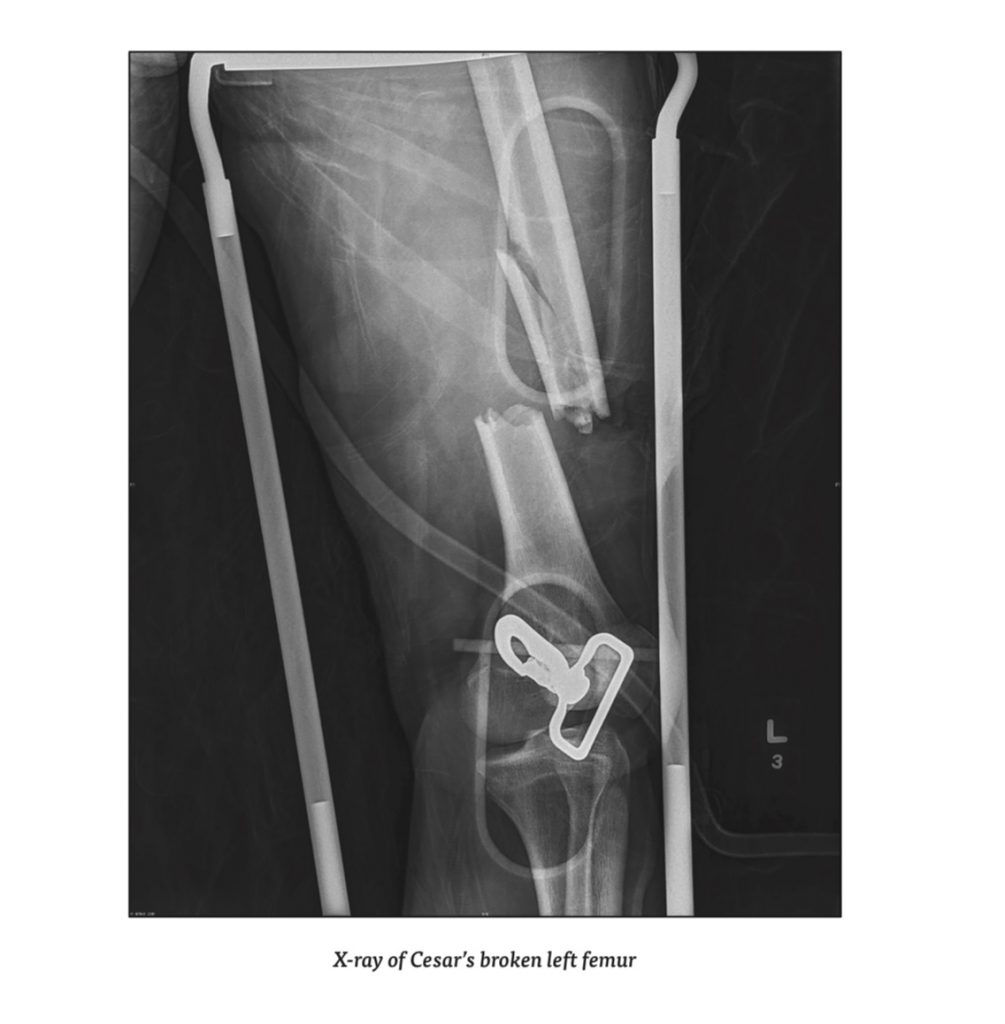
With his family holding a months-long vigil at the hospital, Perez’s sister Carolina ultimately picked up a second job so he didn’t lose his apartment. His father used up his 401K to finance trips from Savannah to Atlanta, his other sister Alicia put her life on hold to be at the hospital and his mother never left his side — for two years.
Even as Perez languished in a hospital bed, his broken face covered in bandages, his old face was part of a Super Bowl Pepsi TV commercial and his roles in “Beast of Burden” with Daniel Radcliffe, the Georgia-filmed thriller “Blind Trust” and “The 15:17 to Paris,” a film directed by Clint Eastwood, were being released. Ironically, outside of his hospital ICU, Perez’s film career was taking off. He writes that when his father and his sister went to his demolished vehicle to retrieve his computer, they found one of his acting headshots unmarred on the driver’s seat.
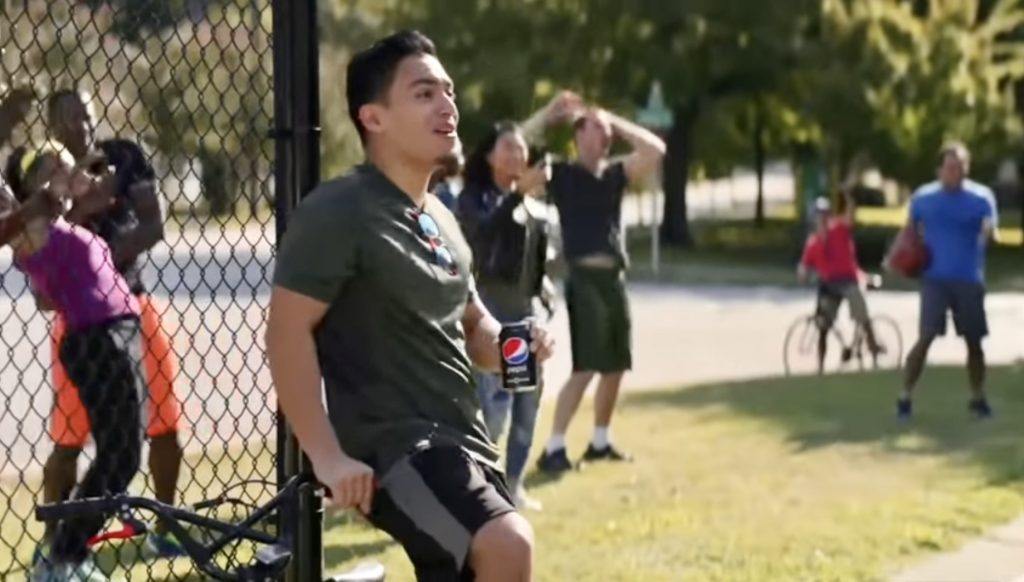
Because there were so many holes in his memory, Perez interviewed members of his family for “Chase The Light.” In the process, he learned his parents, Nuria and Rolan Pérez, had almost polar opposite religious responses to his near-fatal accident. “My mom wanted nothing to do with her faith because all she had ever asked was for her family to be protected and then she almost had that ripped away from her,” says Perez. “I was also rejecting my faith at that time. It was my father and my sisters who kept it together, held their ground and kept telling us, ‘Cesar, you’re a miracle.’ For my father, it was especially eye opening after he saw the car. He knew there had to be something bigger involved for me to have survived that. Like me, my mom’s faith is still healing. We’re not completely there yet but she keeps getting closer and closer as she sees me on the other side of this proverbial mountain. Every day, she smiles a little bit more.”

Before the accident, in addition to his acting, Cesar had also been a rising young video producer and graphic designer at the Cox Media Group in Dunwoody. Now with multiple surgeries and unending hospital bills, Perez was terrified of losing his job — and his health benefits with the company. Not only did Cox find a way to keep him on the payroll (even after the sports vertical he worked for had been eliminated), his bosses guided him through the process for applying for disability and the differences between long-term and short-term. Christopher Smith, a former boss at Cox even reached out to him with freelance graphic design work: “It made me feel whole again.”
And like Joni Mitchell who, in an interview with CBS News this week, revealed that her own videos posted online helped teach her how to play guitar again after her brain injury, thanks to a series of music videos posted on his YouTube channel, the old Cesar taught the recovering one how to sing and play again. “I think my sisters told Deborah [Vega], my therapist at Shepherd Center about the videos,” says Perez laughing. “I had even forgotten about them! Every day in therapy, Deborah would show me parts of the video and challenge me to hit those notes and play those chords. After I got discharged, I would practice at home. These songs that I had written years ago really resonated for me during my recovery.”
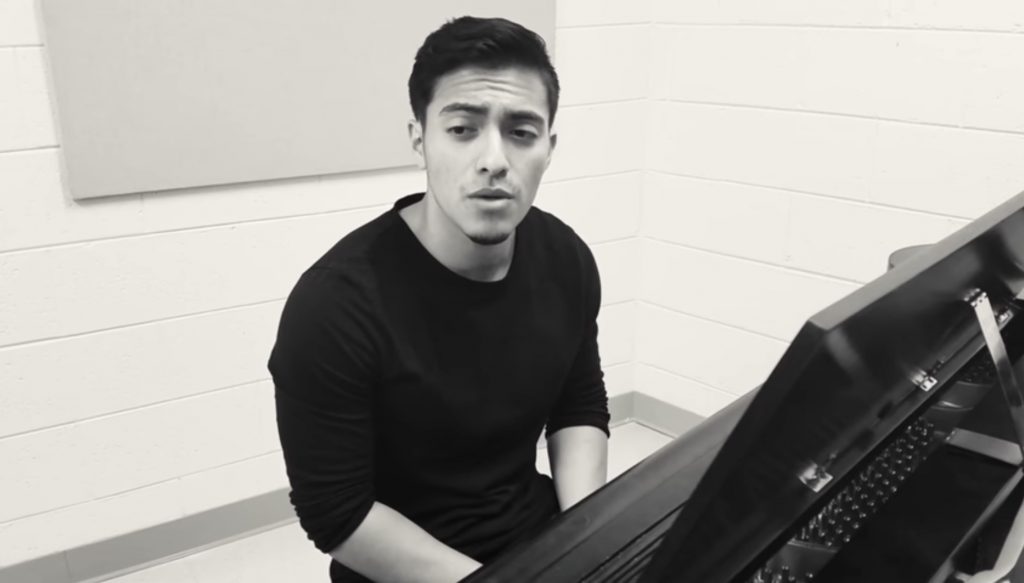
Another musical milestone in Perez’s recovery hit a less positive note. Just before Christmas 2019, after spending months relearning how to sing, play and write, the musician proudly pulled his Latina girlfriend aside to debut a new song she had inspired, “I Love You Like I Did.” In the memoir, Perez recounts her reaction: “You’re definitely going to marry a white girl. That’s more her style, probably.” The pair ended their relationship the night before Cesar was scheduled to attend the sentencing of the drunk driver who had nearly killed him.
In addition to facing Alexander Lopez-Vazquez, the man who had upended his life and career, Perez also had to grapple with another reality: like the Perez family, Lopez-Vazquez, an Afghanistan veteran, had immigrated to America from El Salvador. As Perez writes in “Chase The Light”: “My parents had brought me at age three to the US to avoid poverty and violence. This was absurdly ironic.” In advance of the sentencing, Perez had written to the judge requesting a meeting with Lopez-Vazquez, along with permission to film their conversation.
If could go back in time? I would. I didn’t need to go through this to find ‘my purpose’ in life. But I found a way to continue with my purpose after this.
Cesar Perez
“Eventually, I knew I wanted to do a documentary about my experience,” Perez explains. “I wanted to record the first time I was going to see the individual who came into my life and burned it to the ground. I wanted an answer: why did this happen? His lawyer tried to humanize him to me. My feeling was, ‘I’m a US citizen. You’re in our armed forces. You are supposed to protect me. Instead, you come home from Afghanistan and almost killed me.’ The irony of that was too much. I wasn’t having any of it. I also wanted it filmed so there would be a record so I didn’t do anything stupid in the moment or do anything I would regret. I wanted to keep my anger in check.”
After the sentencing as Perez got into the car with his parents to go home, he felt unexpectedly lighter. “I was surprised by my reaction,” he remembers. “But I realized I had finally said my piece and he had seen me standing. He also got to see that I didn’t turn out like him. Even with all of the depression I had during my recovery, I chose not to drink my problems away. Having him see me go in the opposite direction was important.” On the advice of an attorney, Perez also filed suit against — and eventually settled with — the big rig company responsible for the second truck that hit him. A tractor trailer that still was on the road, despite a history of service violations. The settlement helped to pay some of his mounting medical bills.
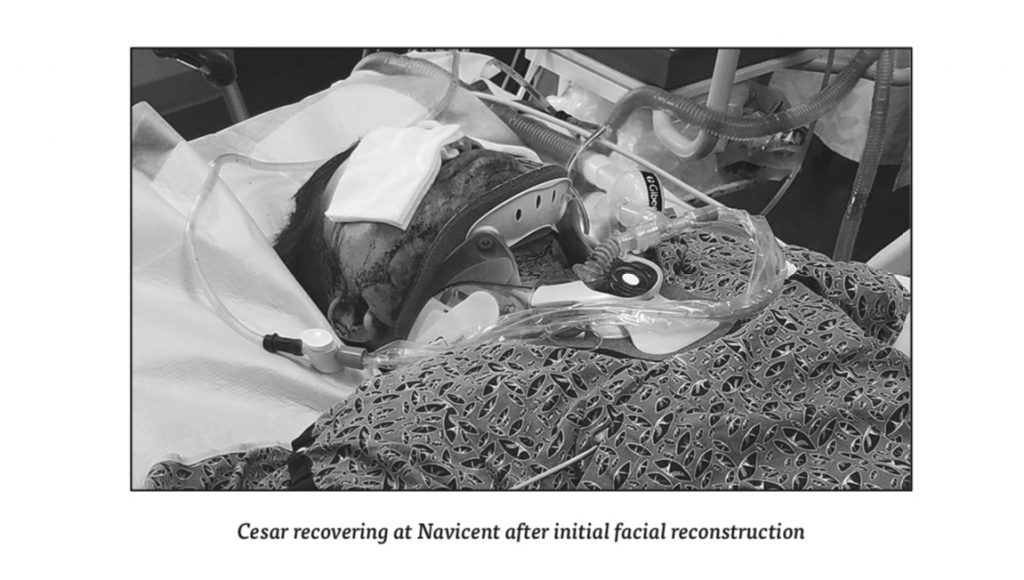
As his body recovered and he was able to once again hit the gym, Cesar Perez kept busy repairing his broken spirit as well. He brought gift bags to the volunteer firefighters and paramedics who had worked for hours to free him from the wreckage of the accident (after watching him literally fight to stay alive that night, the emergency workers had stayed in touch with his family). They even ended up making Perez an honorary member of the Treutlen County Fire Department in Soperton, Georgia (Last week, during his trip to Savannah, Perez says he heard voices call his name on River Street. When he turned around, he saw two of the Treutlen County firefighters who had saved him, in town for a conference. After a hug, he promised to return to Soperton to perform a concert for them).
Cesar also went back and watched his Pepsi commercial on YouTube and asked his parents to go out and get copies of “Beast of Burden,” “Blind Trust” and “The 15:17 to Paris” for him to watch. “I wanted to see the life I had, the life I left behind,” he says. “It made me cry and it made me angry but at the very end, I realized, ‘you did this once, what’s holding you back from doing it again?’ Sometimes, actors don’t catch a break until they’re 30. All hope is not lost for me to get back out there.”
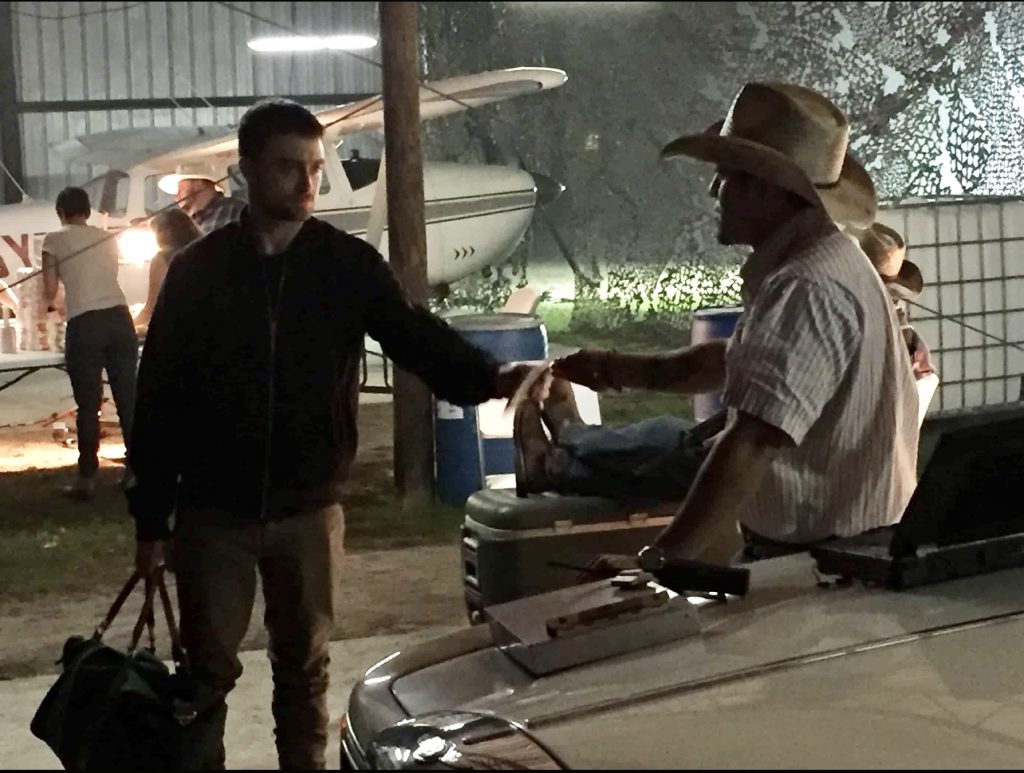
Perez also started work on “Chase The Light.” “At first, I would cry nonstop,” he recalls. “I had to go back and revisit everything I had lost. It caused some depression and anxiety. Slowly, as I kept writing, it served as therapy, as catharsis for my broken soul. Slowly, the tears stopped coming and I could recount everything without shedding a tear. I was becoming the person I was before. That gave me the strength to continue. I realized, ‘Hey, I am going to make it out of this. There’s no reason that other people can’t.’”
Unlike a lot of inspirational memoirs lining the shelves, Perez’s book isn’t saccharine, sappy or plagued with platitudes. There’s a reason he fought to get the word “gruesome” added to the title. I don’t feel ‘thankful’ this happened,” he says. “I don’t feel like all of this ‘happened for a purpose.’ If could go back in time? I would. I didn’t need to go through this to find ‘my purpose’ in life. But I found a way to continue with my purpose after this. Am I grateful this happened? By no means. But I’m doing the best I can with what I have. That’s the message I want to get across.”
My two trucks to the face can be your recent unemployment or your illness, it all still applies. I want people to know you can still live a fulfilling life, you can still find happiness.
Cesar Perez
In addition to his plans to write, shoot, produce, edit, compose the score for and be the lead subject of his documentary based on “Chase The Light,” Perez is discussing with his agent the possibility of acting again in front of the camera. For now, he’s keeping busy with offscreen creative film assignments (he recently wrapped work as senior graphic designer on the upcoming John Malkovich thriller “Mind Cage”) and doing voiceovers. And while Perez jokes that voicing a video game character wasn’t exactly on his career to-do list, when the opportunity arose to voice Umbra for the new “Rogue Company” game, he immediately said yes. After all, the character is described on the game’s Fandom wiki website as a bad ass assassin (complete with a remote-controlled spider drone) and true believer who, “after a mission went sideways, was left for dead. Thanks to numerous cybernetic implants, Umbra was reborn, more zealous and committed than ever.”
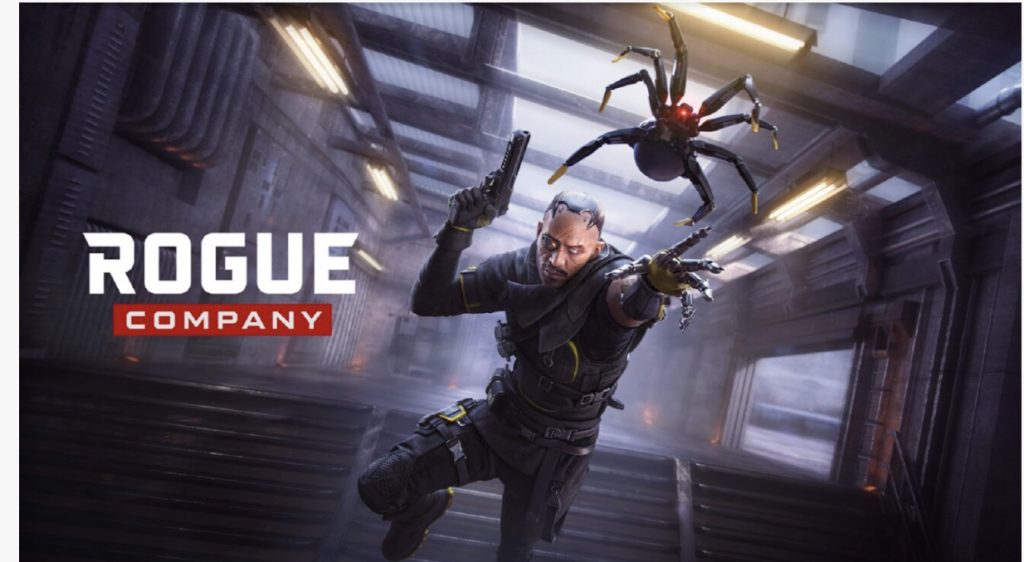
“I mean, how could I say no to that?” Perez asks, laughing. “When they sent me the description, it was perfect. I said, ‘let’s do this!’”
In addition to the upcoming release of a new album of songs he’s written during his recovery, Cesar Perez is staying busy getting the word out about his gritty but grace-filled new memoir. “Now that we’re all coming out of this pandemic, my two trucks to the face can be your recent unemployment or your illness, it all still applies,” he says. “I want people to know you can still live a fulfilling life, you can still find happiness. And if you can’t see clear blue skies, you can at least make them a little less gray. That was my whole purpose of writing this. My family helped me to hold on. I held onto them for the longest time. Now, thanks to them, I’m able to hold onto the endless goals and endless possibilities I have in front of me to pursue. I’m forever chasing that light.”
You can follow Cesar Perez’s updates about his book and career via @cesarperezfit on Twitter and Instagram and his YouTube channel. To order a copy of “Chase The Light: The Gruesome Art of Becoming Unbreakable” or to learn more about Cesar’s business services, go to his professional website.
Above photo: Cesar Perez performing his original song “Don’t Let Go Tonight” in a 2015 music video on his YouTube channel. The video would later help him relearn how to sing and play guitar.

Richard L. Eldredge is the founder and editor in chief of Eldredge ATL. As a reporter for the Atlanta Journal-Constitution and Atlanta magazine, he has covered Atlanta since 1990.

